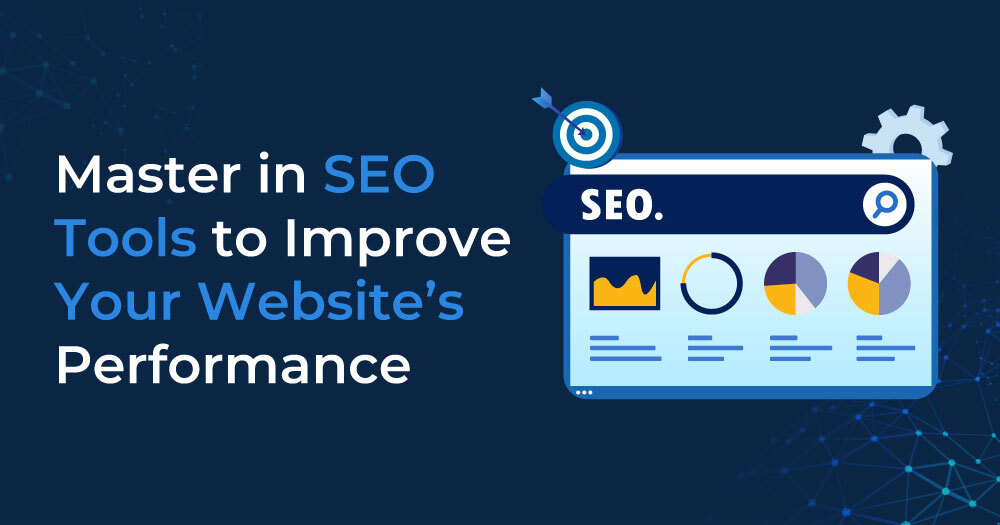It’s essential to have a strong online presence in the modern digital world. Search engine optimization is one of the greatest ways to accomplish this (SEO). By increasing your website’s exposure in search engine results, SEO helps increase the amount of natural traffic that comes to it. However, where do you even begin? During this journey, SEO tools can be your greatest allies. Here’s how to use these tools to boost your website’s performance.
Table of Contents
Understanding SEO Tools
SEO tools are software designed to help you optimize your website and track its performance in search engine results pages (SERPs). They offer insights into various aspects of SEO, such as keyword research, on-page optimization, technical SEO, backlink analysis, and performance tracking. Google Analytics, Google Search Console, Ahrefs, SEMrush, Moz, and Screaming Frog are a few of the well-known SEO tools.
Keyword Research
Conducting keyword research is essential to any successful SEO plan. SEO tools can help you find the right keywords that your target audience is searching for. Here’s how to get started:
- Identify Seed Keywords: Begin with broad terms related to your industry or niche. For example, if you run a gardening website, seed keywords might be “gardening tips,” “plant care,” or “landscaping ideas.”
- Use Keyword Research Tools: Tools like Ahrefs, SEMrush, and Google Keyword Planner can generate a list of related keywords along with important metrics such as search volume, keyword difficulty, and cost-per-click (CPC).
- Analyze Competitor Keywords: Tools like Ahrefs and SEMrush allow you to see which keywords your competitors are ranking for. This can give you insightful information and lead to fresh keyword opportunities.
- Focus on Long-Tail Keywords: Long-tail keywords (more specific phrases) are often less competitive and have higher conversion rates. For example, “best indoor plants for low light” is a long-tail keyword that could attract a more targeted audience.
On-Page Optimization
On-page optimization involves improving individual pages on your site to rank higher and attract more relevant traffic. SEO tools can help with the following:
- Content Analysis: Tools like Yoast SEO (for WordPress) and SEMrush’s On-Page SEO Checker can analyze your content for keyword usage, readability, and overall quality. Make sure your primary keyword appears in key areas such as the title, headings, meta description, and throughout the content.
- Title Tags and Meta Descriptions: Use SEO tools to optimize your title tags and meta descriptions. These elements should be compelling, include your target keyword, and accurately reflect the page’s content.
- Header Tags: When used correctly, header tags (H1, H2, H3, etc.) aid in the understanding of your content’s structure by search engines. Tools like Screaming Frog can analyze your header tags and ensure they are used correctly.
- Image Optimization: Use tools to compress and optimize images without compromising quality. Ensure all images have descriptive, keyword-rich alt text to improve accessibility and SEO.
Technical SEO
Enhancing your website’s backend structure is the main goal of technical SEO. SEO tools can help identify and fix technical issues that might be hindering your performance:
- Site Audits: Tools like Screaming Frog, Ahrefs, and SEMrush offer comprehensive site audits that can identify issues such as broken links, duplicate content, missing alt text, and slow page load times.
- Mobile-Friendliness: Use Google’s Mobile-Friendly Test to ensure your website is optimized for mobile devices. Mobile-friendliness is a crucial ranking factor.
- XML Sitemaps: Ensure your website has an XML sitemap and submit it to Google Search Console. This improves the efficiency with which search engines crawl and index your website.
- Structured Data: To improve the way search engines comprehend your material, use schema markup, or structured data. This is when tools like Google’s Structured Data Markup Helper come in handy.
- Page Speed: One important ranking criterion is page speed. Utilise resources such as GTmetrix and Google PageSpeed Insights to assess the speed of your website and obtain suggestions for enhancements.
Backlink Analysis
Backlinks are a major ranking factor. SEO tools can help you build and analyze your backlink profile:
- Backlink Analysis Tools: Tools like Ahrefs, Moz, and SEMrush provide detailed insights into your backlink profile, including the number of backlinks, referring domains, and the quality of those links.
- Competitor Analysis: Examine the backlink profiles of your rivals to find possible avenues for link development. Look for high-authority sites that are linking to your competitors rather than to you.
- Disavow Toxic Links: Identify and disavow toxic or spammy backlinks that could harm your site’s performance. Tools like Google Search Console can help with this process.
Performance Tracking
It’s critical to monitor your SEO performance in order to determine what is effective and what requires improvement. Here’s how to use SEO tools for performance tracking:
- Google Analytics: Track key metrics such as organic traffic, bounce rate, average session duration, and conversion rates. Set up goals to measure specific actions users take on your site.
- Google Search Console: Monitor your website’s performance in Google search, including impressions, clicks, average position, and click-through rate (CTR). Make use of this data to pinpoint places that need work.
- Rank Tracking Tools: Tools like Ahrefs, SEMrush, and Moz allow you to track your keyword rankings over time. Keep an eye on your development and modify your plan as necessary.
- Reporting: Create regular SEO reports to track your progress and share insights with stakeholders. Most SEO tools offer customizable reporting features.
Conclusion
Utilizing SEO technologies is crucial to raising the performance of your website. By leveraging these tools for keyword research, on-page optimization, technical SEO, backlink analysis, and performance tracking, you can create a comprehensive SEO strategy that drives organic traffic, improves search rankings, and boosts your website’s overall performance. Stay consistent, monitor your progress, and continuously optimize to stay ahead in the competitive digital landscape.
